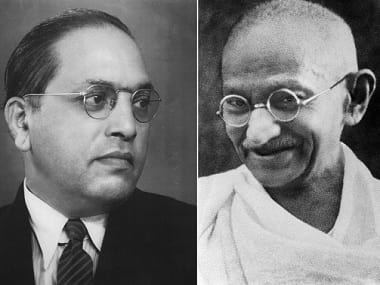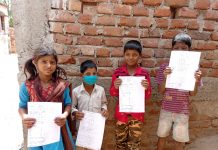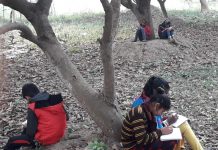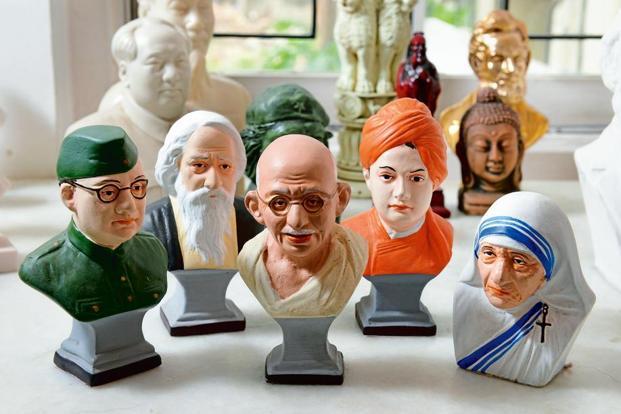Today is the 14th of April, a day that we celebrate as Ambedkar Jyanti every year. We also refer to this day as ‘Equality Day’. The occasion is important to all of us, and I feel that this is an auspicious occasion where I can share my experiences of working with Dalit and economically deprived communities in rural India.
I can say that during these years I have seen and experienced the unbearable pain of inequality and untouchability through my students.
My escape from a primarily bookish/theoretical academic life has given me the chance to not understand but also empathize with and realize the circumstances of a huge number of children who have been deprived of everything. Even what we consider the basics have been denied to them just because they were born into particular families and communities.
Honestly, I have many stories of both pain as well as hope to share but today on this occasion I would like to share with you a story that is quite likely to strike a chord with many of my readers and compel them to think and reflect.
I am working in a village, a beautiful village in rural Bihar. The majority of the population is composed of the OBCs and Dalits. The last elected panchayat head was from the upper caste/privileged community and he built a library in the village but unfortunately it would always remain closed. The library was named after the Hindi literary figure Ramdhari Singh Dinkar. The library is symbolically and physically present without any functionality from the last few years. It is a small but beautiful concrete construction equipped with reasonably good quality doors and window in the middle of a grass land. In close vicinity of the library one can easily find children from different communities playing the whole day, several of whom may have seldom touched a book in a long time. There is hardly anybody who has stepped inside the library, sat down to read a book or even seen it open in so many years. Perhaps it is only the founders who occasionally step inside.
Few years back a new panchayat leader got elected and he belongs to the Dalit community.
So, the present elected leader is insisting on changing the name of the library from ‘Dinkar Library’ to ‘Ambedkar Library’. The proposed change in name is fine, but what is ironic is that like his previous counterpart even he is not interested in seeing to it that the library becomes functional, a vibrant and thriving space for thought and discussion. He has seldom bothered to ensure that there are good books in the library, the library offers an equal space for all community members to access books and reading material or even in general ensure that it opens every day. It seemed like no one was really interested in the functioning of the library and the concern was merely ornamental and politically motivated.
Day by day the matter around the change of name turned into a heated debate, people from both the privileged and the unprivileged castes seemed troubled and restless. Over the next couple of weeks, one after the other, both parties came to me and discussed about their stands on the issue. I wonder how and why they thought I could be of help.
Here I can romanticize the village community and say that ‘villagers are innocent’. By the way, I listened to them very carefully. It was all about the politics over the proposed change of the library’s name. The matter had become heated and both parties seemed passionately in support or in opposition to the matter, they were all supremely charged.
They asked me for a solution. So, after listening to both of them I offered them a solution. I was confident enough that no party would accept it, but being the teacher that I am, I kept insisting on it. My first solution was to erase all names and symbols from the library, open the library and handover the keys to the children and let them decide what to do or how to run the library functionally. Before I could even complete, I saw them yawning.
They looked confused and reluctant and finally refused to accept this solution.
I told them my second solution; their eyes did light up with a little hope. I asked them to rename the library after ‘John Lenon’ – a great singer who imaged a beautiful world and was eventually killed by the Americans. I explained to them about John Lenon. To make my point more effective, I played his iconic song ‘Imagine’ and I even translated its lyrics into Hindi for them. Believe me, there was silence and then several of them stood up and they walked out.
I immediately realized that this too was a failure. Nobody knows how they would rename the library but they must have surely renamed me ‘the mad man’!
I became nervous not because my precious solutions had been refused but I was concerned for my students whose parents may stop sending them to my center.
That might be a new problem, because a large number of students coming from all caste communities, learn and explore together at my center. They might be forced to discontinue coming, dropout or even give up their studies. Many thoughts keep haunting me. My fears were not baseless, in fact a few students from both the communities did stop coming to the center. I found them doing agriculture work and cattle feeding. I asked them the reason why they stopped coming to the center and they echoed the same concerns.
I felt heart broken, after generations of denied access to education many of the children had started their learning trajectories, they were all first-generation learners.

Me and my team really worked very hard every day. I found both Ambedkar and Dinkar staring at me. I was feeling bad, these children kept waiting for me, they came every day even before the center opened. They loved the space so much. Their eyes and smiles kept bothering me so I decided to talk to their parents. Firstly, I went to the Dalit parents and with humility requested them to send their children back. I re-elaborated the importance of education and told them that Baba Saheb Ambedkar would be proud of you if you allowed your children to bask in the light of education. I also emphasized how an icon as great as him would never insist on naming anything after him just for the sake of it. He would rather have emphasized getting an education, empowering one’s life with the light of learning. But unfortunately, they didn’t seem to understand. They closed all the possibilities of communication by saying that I too came from a privileged background and could never think of the betterment of their children.
It was painful and it raised a question on my last ten years of working tirelessly with children from all backgrounds with the hope of education and empowering them.
I could not stop yet; I gathered the courage to visit the upper caste families who had stopped sending them children to the center.
I asked them to send their children back. I repeated the same lines with all humility and respect. But they refused to pay any heed and told me that I would not be able to understand their minds as I was an ally of the underprivileged and only thought of their wellbeing.
Again, I felt a similar pain.
I returned back to center, tired and broken as I had failed to bring back those children to education. I shared the narrative with my team members. They too felt very sad. They asked me to walk outside the room. I came out and saw three girls reciting a much loved poem written by Kamla Bhasin entitled ‘Kyunki Mai Ladki Hun Mujhe Padhna Hai’(Because I am a girl, I want to study’).
A silent smile came on my lips as I passed by. Then I walked towards the music room where some of the students were rehearsing John Lennon’s Imagine. It was just a coincidence, a moment of realization. A miracle just happened as a teacher became a student and my students became my teachers. I continued my walk, humming Tagore’s lines for Gandhi “Jodi tor dak shune keu na eshe tobe ekla cholo re” ( If they answer not to thy call, walk alone…)










